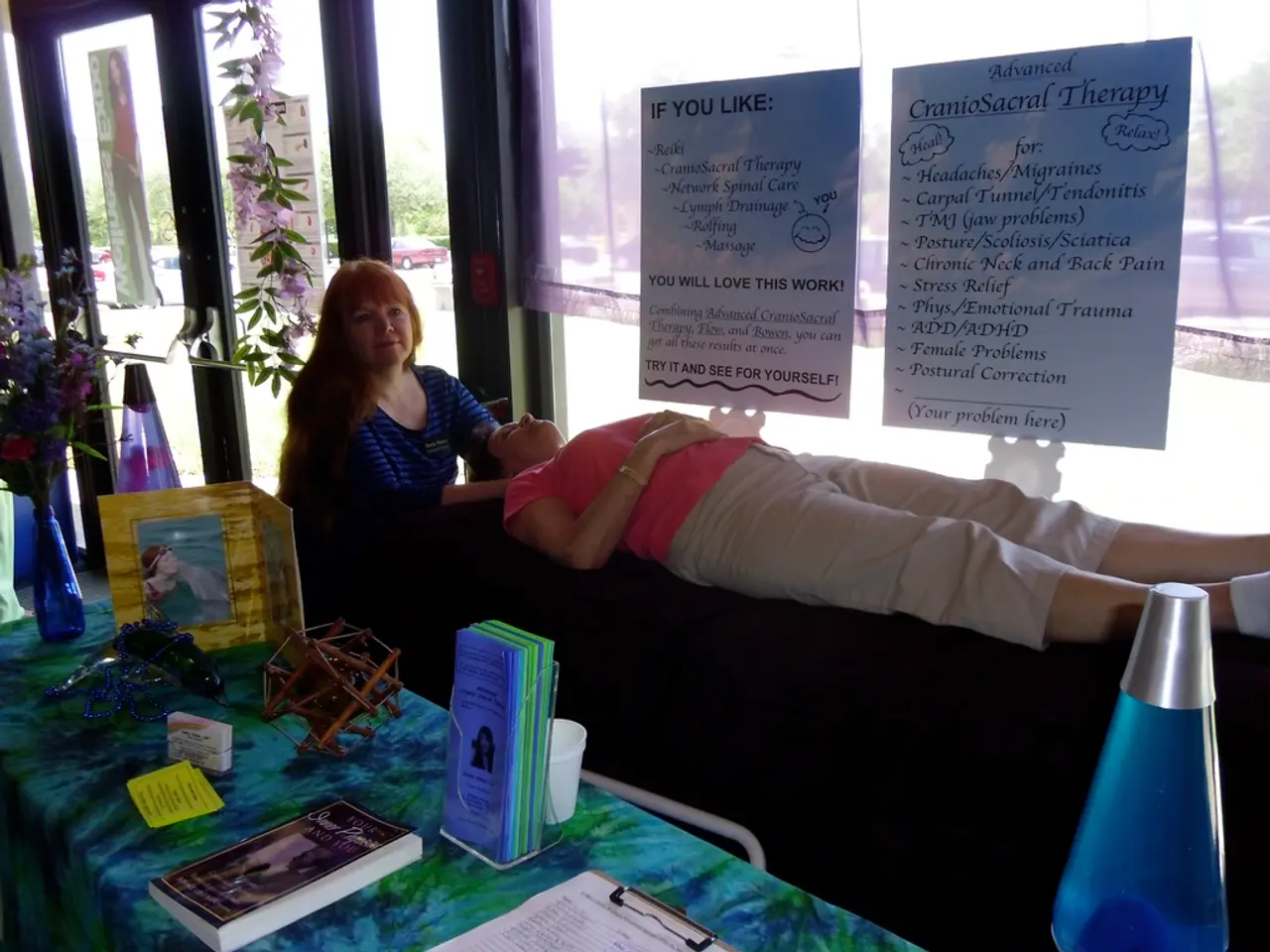Enhance Women's Sexual Desire: Strategies to Boost Libido
Low libido, or a decrease in sexual desire, is a common issue that affects many women. Fortunately, there are effective options available to address this concern.
In the realm of medications, two FDA-approved drugs specifically target low sexual desire in premenopausal women: Flibanserin and Bremelanotide. Additionally, Estrogen therapy, either systemic or local vaginal, can alleviate menopause-related symptoms such as vaginal dryness and boost libido for postmenopausal women. Testosterone therapy, in the form of patches or creams, has shown efficacy in improving sexual desire in postmenopausal women diagnosed with hypoactive sexual desire disorder (HSDD), although higher doses may carry side effects like unwanted hair growth. Other hormonal options like DHEA or tibolone may be considered under specialist supervision.
Talk therapy plays a crucial role in addressing the emotional and psychological aspects of low libido. Sex therapy, under the guidance of a certified sex therapist, helps tackle emotional blocks, anxiety, and communication issues that dampen libido. Cognitive Behavioral Therapy (CBT) and trauma-informed counseling can be effective in managing psychological contributors such as stress, past trauma, or relationship conflicts. Couples therapy can improve intimacy and teamwork around sexual issues since libido concerns often affect relationships. Counseling may also focus on sexual education, communication, body image, and stress management.
Additional supportive approaches include addressing underlying medical conditions (thyroid disease, anemia, depression) and reviewing medications that may lower libido (some antidepressants). Lifestyle improvements such as better sleep, exercise, stress reduction, and a nutrient-rich diet support overall sexual well-being.
A comprehensive evaluation, including hormone levels, physical exam, and psychological assessment, guides personalized treatment plans combining these options. It's essential to remember that low sex drive isn't a reflection on the individual or their relationship. Discussing changes in libido with a primary care physician or women's health specialist is important, as they talk with people about issues of sexual dysfunction and sexual interest regularly.
In a recent discussion, Dr. Salena Zanotti, an Ob/Gyn, highlighted additional options to increase female libido. Vaginal DHEA suppositories can help manage vaginal dryness, which can affect sexual desire, and may help increase genital sensitivity in postmenopausal females. Vyleesi®, an on-demand prescription medication, can be used when the mood is right and is an injectable medication used in the thigh or abdomen.
Wellbutrin®, an antidepressant, may be prescribed off-label for low sex drive and can increase libido as a happy side effect. It's important to remember that every individual is unique, and what works for one may not work for another.
In conclusion, the most effective approach to low female libido often integrates FDA-approved drugs, hormone therapies, and psychotherapeutic interventions, tailored individually and supported by lifestyle optimization. It's not necessary to suffer in silence if experiencing a dip in sexual interest; sexual health matters as much as the rest of it.
Read also:
- Elderly drivers could face a ban from the road if they don't pass a mandatory vision test under government plans, defended by the minister.
- Guide to Cultivating, Gathering, and Earning from the Amazon's Superfood: Acai Berry
- Reinforced security recommendations issued by NFL for team and league premises after the NYC shooting incident
- Daily Habits that Reduce Inflammation and Potentially Decrease Cancer Risk





